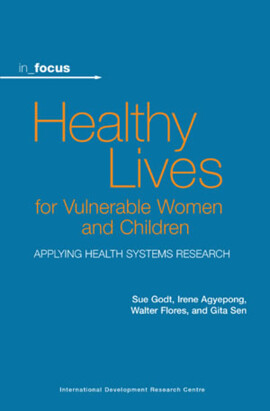
Renewing Our Voice
Over the last twenty years, there has been a considerable increase in the number and range of NGOs involved in responding to the multiple challenges presented by HIV and AIDS: NGOs undertaking HIV and AIDS work; NGOs integrating HIV and AIDS-specific interventions within other health programming; and NGOs mainstreaming HIV and AIDS within development, human rights and humanitarian programming. There have also been significant changes in the global funding environment, particularly in ensuring that the lessons learned over the past 20 years are used to guide the allocation of resources in scaling up responses to HIV and AIDS. These changes both support and complicate the process of expanding the scale and impact of NGO programmes. The proliferation of NGOs and programmes has, at times, occurred at the expense of accountability and quality programming and has led to fragmentation of the NGO 'voice' in the HIV and AIDS response. 160 NGOs world wide have now signed up to Renewing Our Voice: Code of Good Practice for NGOs Responding to HIV and AIDS, which seeks to address these new challenges by providing a common tool to: advocate for evidence-based programmes by outlining the principles and evidence that underscore successful NGO HIV and AIDS work assist NGOs to improve the quality and cohesiveness of their work on HIV and AIDS and strengthen their accountability to our NGO partners and beneficiary communities foster greater collaboration between the wide variety of NGOs now involved in responding to HIV and AIDS and renew the NGO voice by enabling NGOs to commit to a shared vision of good practice in their programming and advocacy.The principles set out in this Code are invaluable guidelines for organisational planning; programme development, implementation, and evaluation; advocacy efforts; and resource allocation.
Published: 2008
Pages: 107
eBook: 9780855988388
Paperback: 9780855985530
| Code Signatories | |||
|---|---|---|---|
| Executive Summary | |||
| Chapter 1 Introduction | |||
| Chapter 2 Guiding Principles | |||
| Chapter 3 Organisational Principles | |||
| Chapter 4 Programming Principles | |||
| Chapter 5 Appendices | |||
| Feedback Form |
Julia Cabassi
Julia Cabassi is currently Regional HIV Adviser, UNFPA, Asia Pacific Regional Office, Thailand
Non-governmental organisations and the management of HIV and AIDS in refugee camps: A comparison of Marratane Camp in Mozambique and Kakuma Camp in Kenya
Gilbert, Hannah
Cunliffe, Alex
Journal of Contemporary African Studies, Vol. 29 (2011), Iss. 1 P.63
https://doi.org/10.1080/02589001.2011.533061 [Citations: 4]Consumer participation in the planning and delivery of drug treatment services: the current arrangements
BRYANT, JOANNE
SAXTON, MELISSA
MADDEN, ANNIE
BATH, NICKY
ROBINSON, SUZANNE
Drug and Alcohol Review, Vol. 27 (2008), Iss. 2 P.130
https://doi.org/10.1080/09595230701829397 [Citations: 32]Non-State Actors as Standard Setters
Legitimacy, accountability and polycentric regulation: dilemmas, trilemmas and organisational response
Black, Julia
2009
https://doi.org/10.1017/CBO9780511635519.010 [Citations: 3]Consumers' and providers' perspectives about consumer participation in drug treatment services: is there support to do more? What are the obstacles?
BRYANT, JOANNE
SAXTON, MELISSA
MADDEN, ANNIE
BATH, NICKY
ROBINSON, SUZANNE
Drug and Alcohol Review, Vol. 27 (2008), Iss. 2 P.138
https://doi.org/10.1080/09595230701829405 [Citations: 33]Teachers becoming lay practitioners of school community psychology
Ferreira, Ronél
Ebersöhn, Liesel
Odendaal, Viona
Education as Change, Vol. 14 (2010), Iss. sup1 P.S101
https://doi.org/10.1080/16823206.2010.517935 [Citations: 7]




